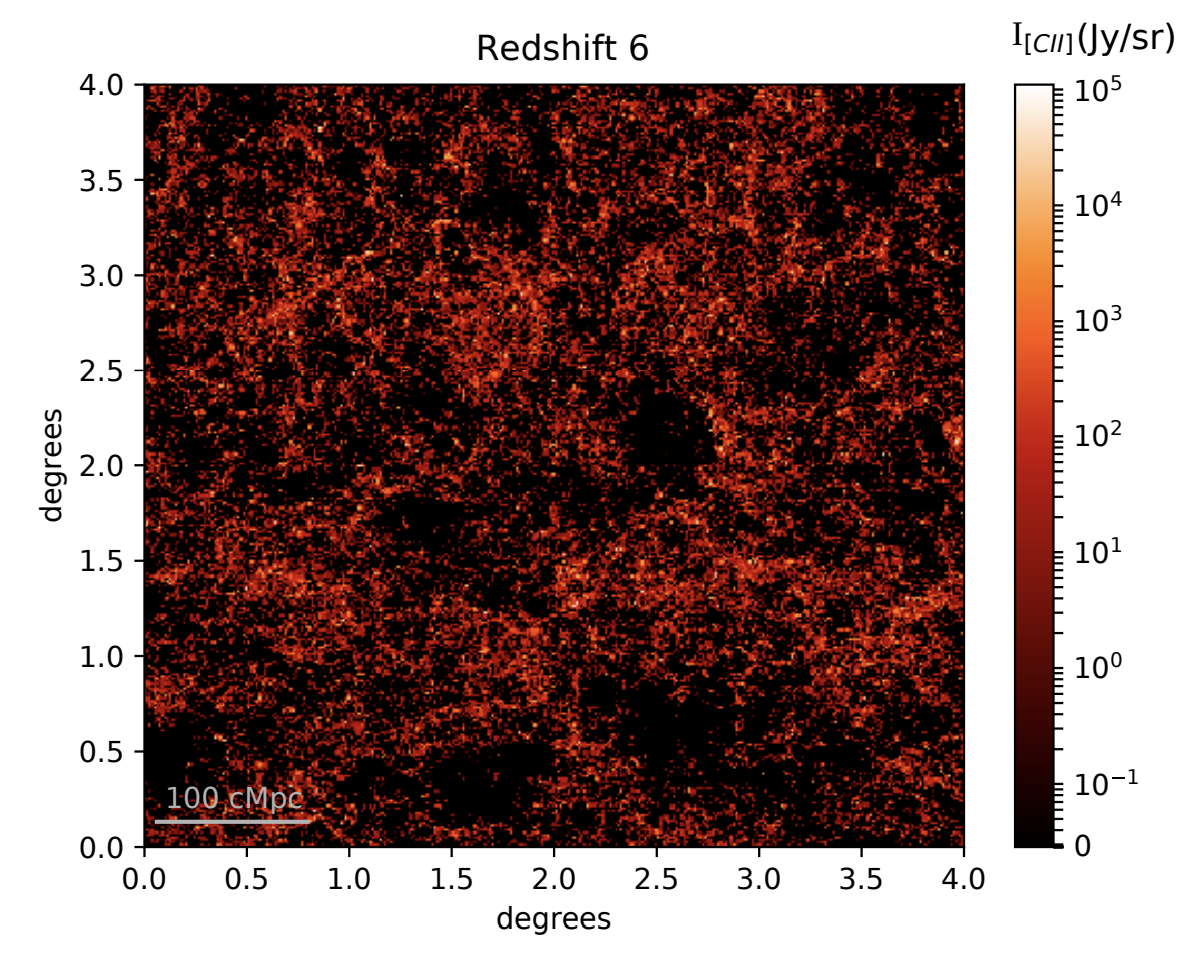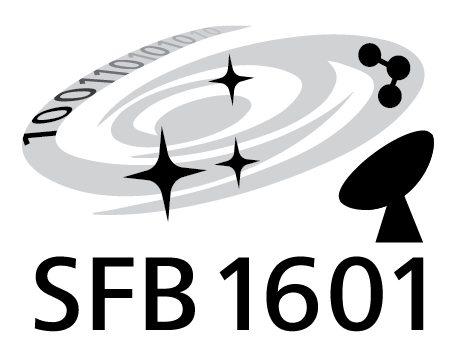Project leaders: Porciani, Cristiano (AIfA); Riechers, Dominik (PH1)

If a line intensity mapping (LIM) measurement is made, what can we infer about the properties and spatial distribution of the underlying population of emitters? The main objective of sub-project C6 is to answer this question by (i) building estimators for different summary statistics that can be extracted from the maps; (ii) generating realistic mock data sets on which to test the estimators; (iii) building a Bayesian toolkit to reconstruct key properties of the underlying galaxy population from the measured data. Direct applications of our findings to the line intensity maps obtained with FYST in sub-project C3 are an integral part of the research done in C6.
2026
The ALPINE-CRISTAL-JWST Survey: JWST/IFU Optical Observations for 18 Main-sequence Galaxies at z = 4─6 Journal Article
In: Astrophysical Journal, Supplement, vol. 282, no. 1, pp. 19, 2026.
2025
The Diamond Ring in Cygnus X: Advanced stage of an expanding bubble of ionised carbon Journal Article
In: Astronomy & Astrophysics, vol. 703, iss. A197, pp. 14, 2025.
[C II]-deficit caused by self-absorption in an ionized carbon-filled bubble in RCW79 Journal Article
In: A&A, vol. 697, pp. L2, 2025.
Do Unusually Cold Starburst Galaxies Exist? A Case Study Journal Article
In: Astrophysical Journal, vol. 980, no. 1, pp. 59, 2025.
2024
Connecting stellar and galactic scales: Energetic feedback from stellar wind bubbles to supernova remnants Journal Article
In: A&A, vol. 690, pp. A72, 2024.
[CII] luminosity models and large-scale image cubes based on COSMOS 2020 and ALPINE-ALMA [CII] data back to the epoch of reionisation Journal Article
In: A&A, vol. 689, pp. A101, 2024.
References
- Cantalupo and Porciani, “RADAMESH: cosmological radiative transfer for Adaptive Mesh Refinement simulations”, MNRAS 411, 1678 (2011).
- Compostella, Cantalupo, and Porciani, “The imprint of inhomogeneous He II reionization on the H I and He II Ly∂ forest”, MNRAS 435, 3169 (2013).
- Garaldi, Compostella, and Porciani, “The Goldilocks problem of the quasar contribution to reionization”, MNRAS 483, 5301 (2019).
- Karoumpis, Magnelli, Romano-Díaz, Haslbauer, and Bertoldi, “[CII] line intensity mapping the epoch of reionization with the Prime-Cam on FYST. I. Line intensity mapping predictions using the Illustris TNG hydrodynamical simulation”, A&A 659, A12 (2022).
- Magliocchetti and Porciani, “The halo distribution of 2dF galaxies”, MNRAS 346, 186 (2003).
- Oddo, Sefusatti, Porciani, Monaco, and Sánchez, “Toward a robust inference method for the galaxybispectrum: likelihood function and model selection”, JCAP 2020, 056 (2020).
- Pillepich, Porciani, and Matarrese, “The Bispectrum of Redshifted 21 Centimeter Fluctuations from theDark Ages”, ApJ 662, 1 (2007).
- Spina, Porciani, and Schimd, “The HI-halo mass relation at redshift z ∿ 1 from the Minkowski functionals of 21 cm intensity maps”, MNRAS 505, 3492 (2021).
- Stacey, Aravena, Basu, and 35 co-authors including, Bertoldi, Graf, Riechers, and Schilke, “CCAT-Prime: science with an ultra-widefield submillimeter observatory on Cerro Chajnantor”, Society of Photo-Optical Instrumentation Engineers (SPIE) Conference Series 10700, edited by Marshall and Spyromilio, 107001M (2018).
- Tomassetti, Porciani, Romano-Diaz, Ludlow, and Papadopoulos, “Atomic carbon as a powerful tracer of molecular gas in the high-redshift Universe: perspectives for ALMA.”, MNRAS 445, L124 (2014).
